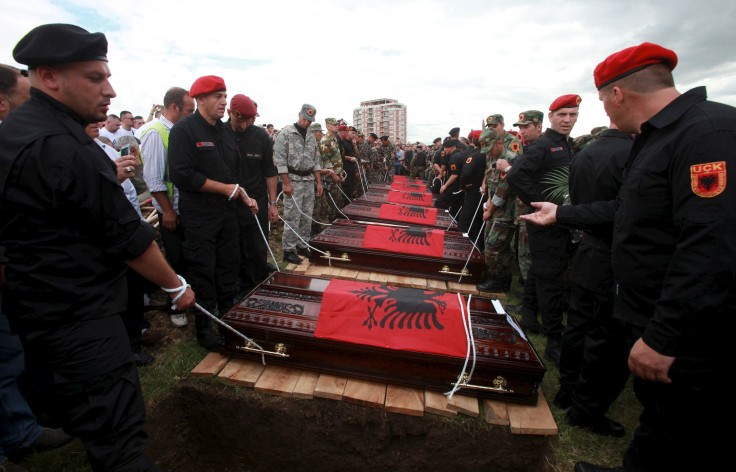Kosovo, Serbia Sign Agreements On Ethnic Rights, Energy And Telecoms

Serbia and Kosovo took a significant step toward reconciliation Tuesday when the two sides signed a series of agreements, including energy and telecoms deals, that also brings Belgrade closer to joining the European Union.
Serbs in northern Kosovo will enjoy more freedom and rights, thanks to one of the deals which lets them manage local economy and education issues, and Kosovo will gain its own international calling code. Kosovo, whose 2008 declaration of independence has yet to be recognized by Serbia, had so far used either Monaco or Slovenia’s country codes for mobile phones.
The two sides also resolved a dispute on sharing the symbolic Mitrovica Bridge that separates the Albanian and Serb communities in northern Kosovo.
E.U. foreign policy chief Federica Mogherini, who mediated the agreements, called them “landmark achievements,” in a statement.
“Solutions such as those found today bring concrete benefits to the people and at the same time enable the two sides to advance on their European path,” she added.
Kosovo Foreign Minister Hashim Thaci said the deals were “in the interest of Kosovo, its citizens, and the European integration of Kosovo,” according to the Wall Street Journal.
Kosovo officially split from Serbia in 2008, 10 years after the Kosovo war ended with the withdrawal of Serbian troops following an 11-week NATO bombing campaign.
Tuesday's agreements come two days ahead of a major summit of western Balkan nations’ leaders, who are set to discuss regional issues, including an unprecedented migration crisis and Russia’s growing influence.
Earlier this month, Kosovo’s parliament approved a special court to investigate alleged war crimes committed by fighters from the now-defunct Kosovo Liberation Army (KLA) during the war.
Last year, an E.U. task force found that there was enough evidence to prosecute several former senior KLA members on charges of crimes against humanity, including unlawful killings, abduction and torture, illegal detention and sexual violence.
The creation of the war crimes court is a step toward meeting an E.U. demand for improved rule of law in the country, as part of a 2013 agreement to normalize ties between the two nations to allow Serbia to join the E.U.
Serbian President Aleksandar Vucic said: "This is a big achievement for the whole of Serbia and it means there are no longer any obstacles, nothing stands on Serbia's way towards Europe," the BBC reported.
© Copyright IBTimes 2024. All rights reserved.











